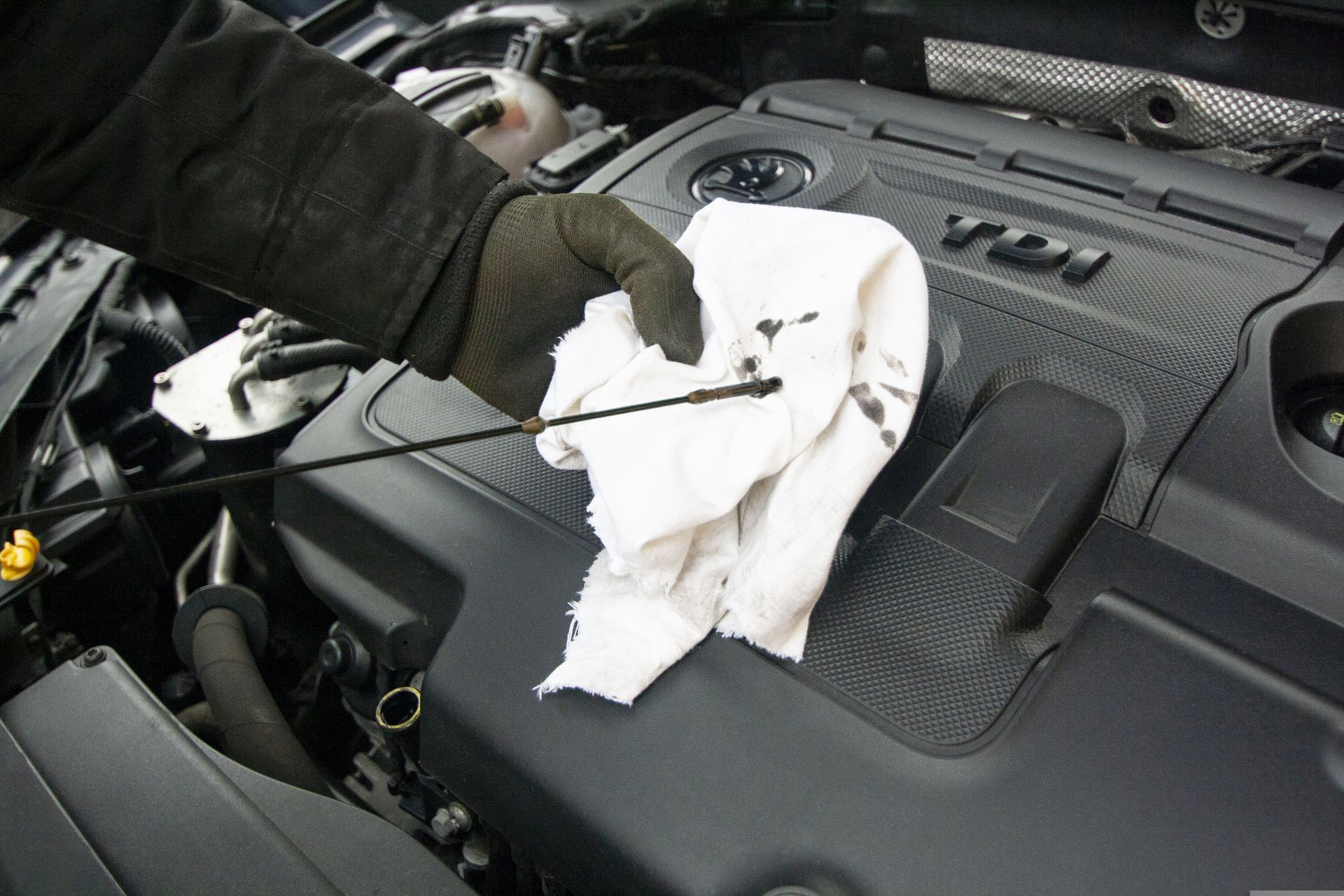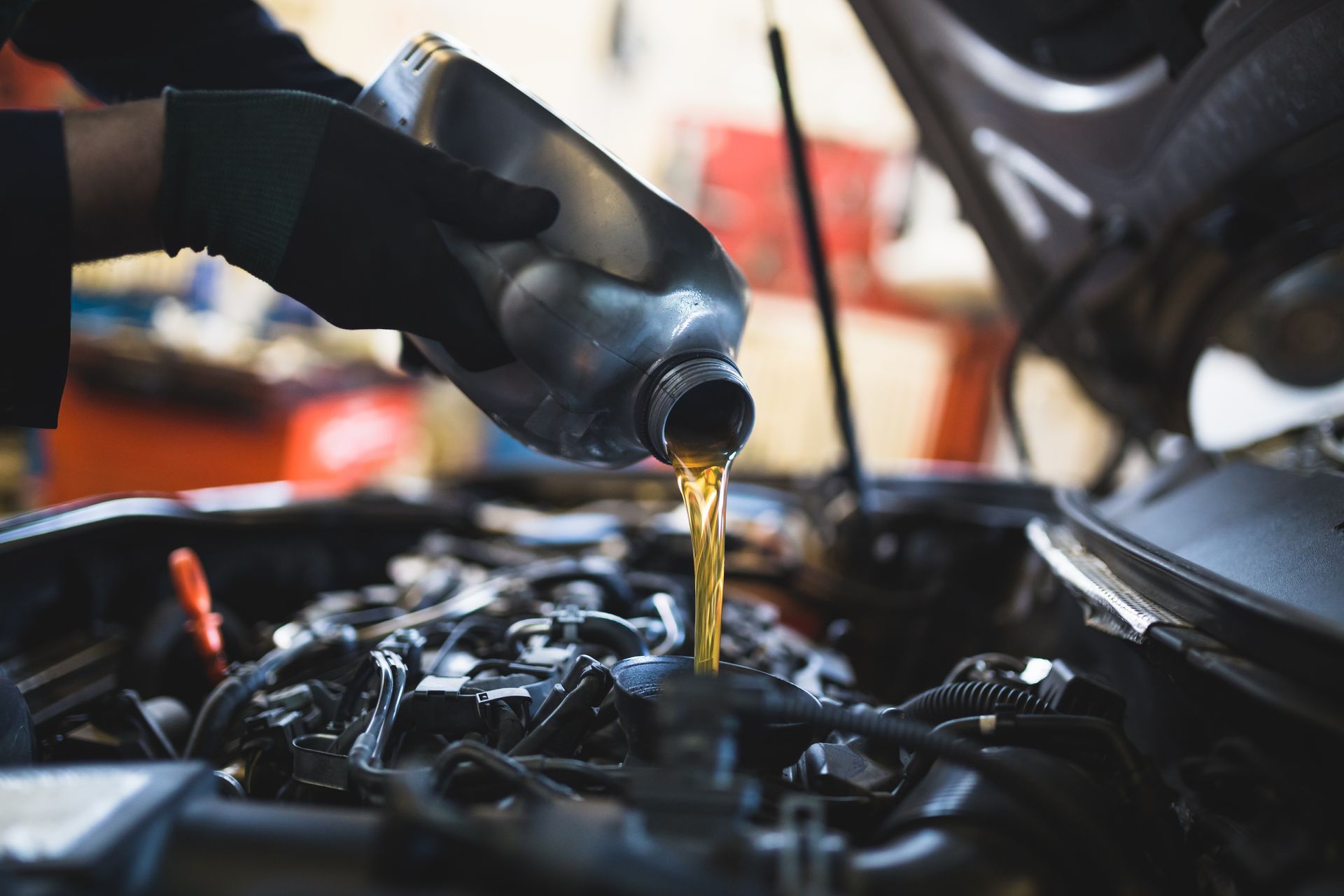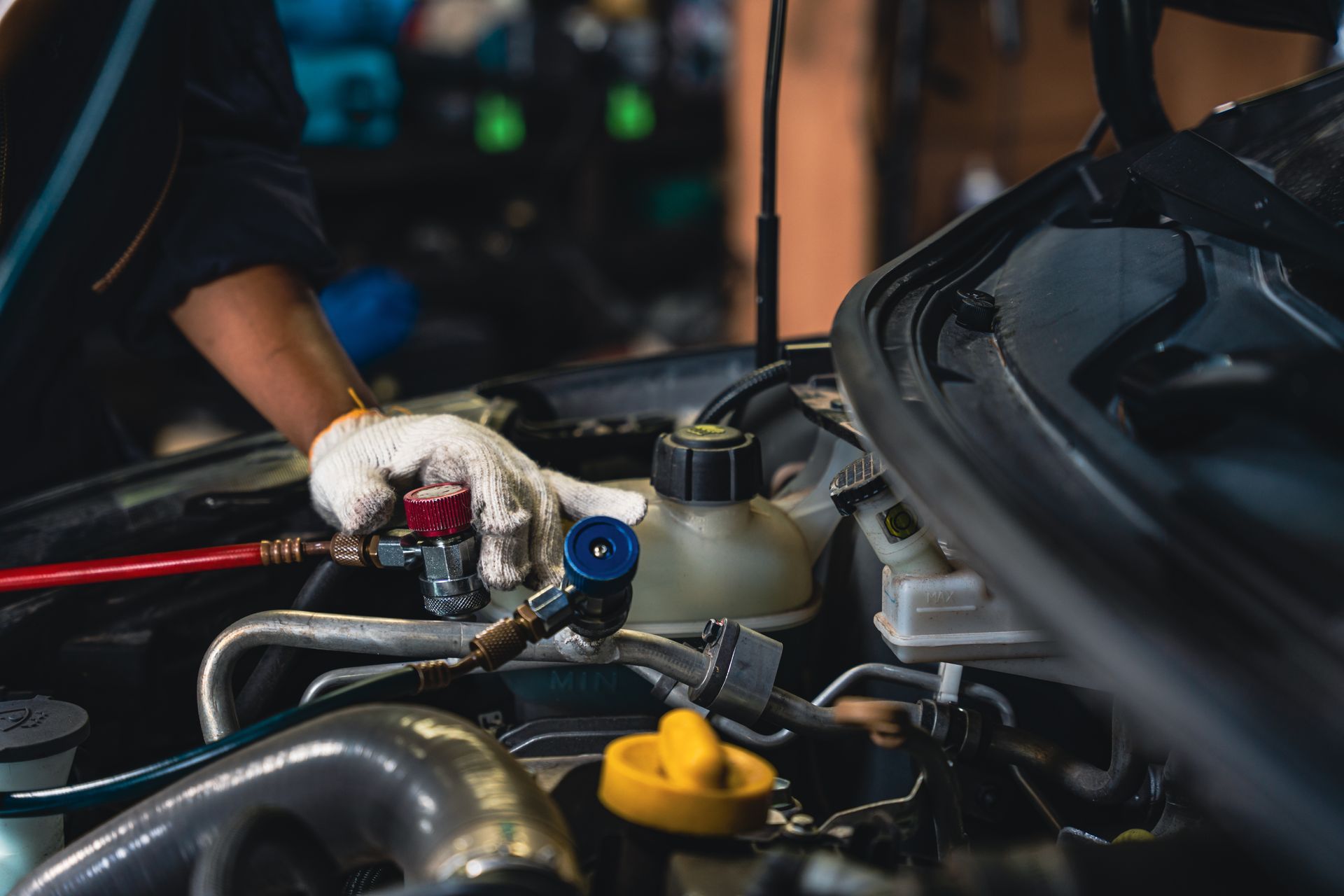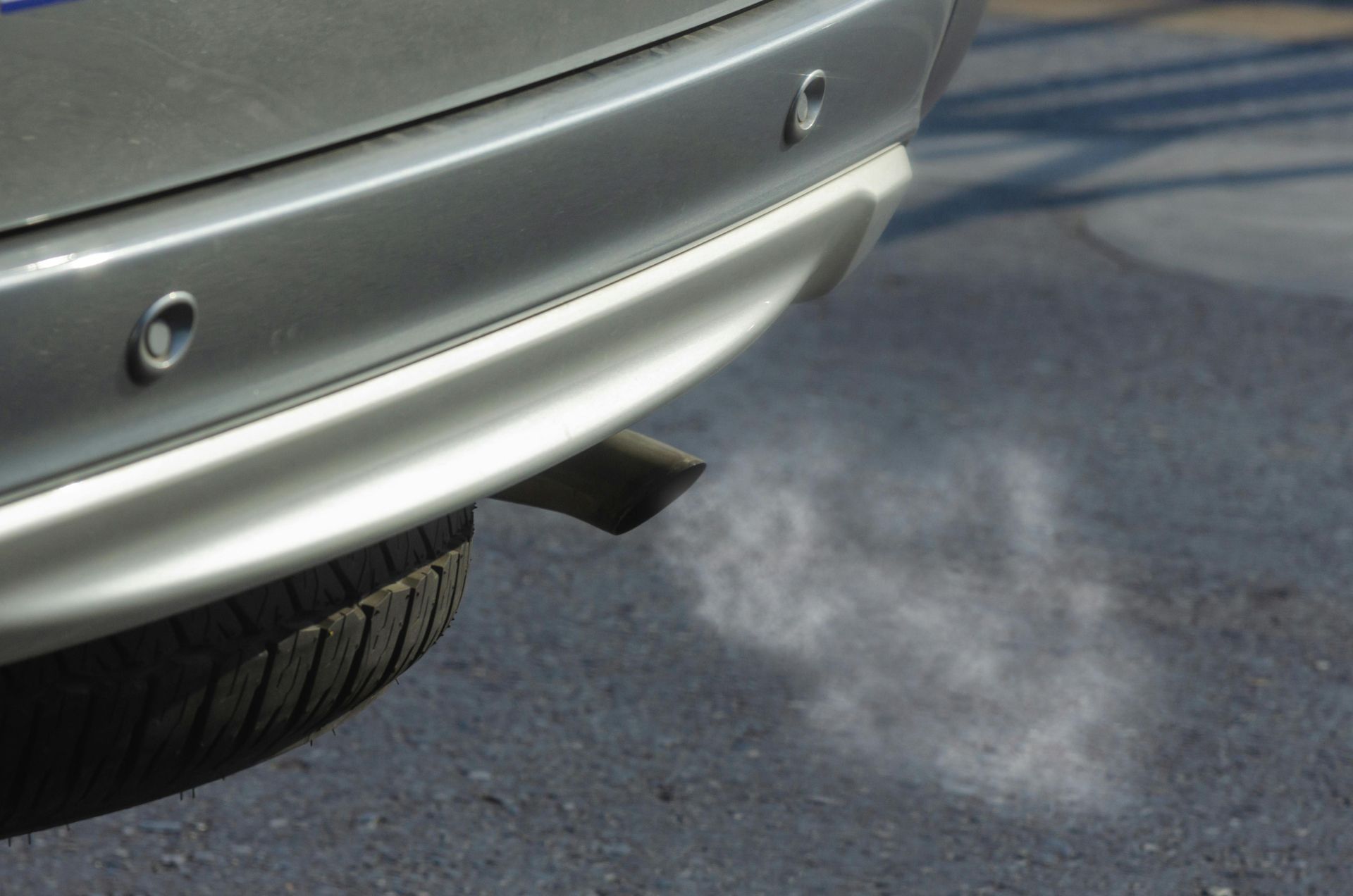Why Does Your Steering Wheel Shake? Common Causes and Fixes
Why Does Your Steering Wheel Shake? Common Causes and Fixes in Grand Rapids, MI
Have you ever been driving around Grand Rapids and noticed your steering wheel shaking or vibrating? It's a frustrating experience, and more than that, it’s a sign that something may be wrong with your vehicle. At Auto Centric in Grand Rapids, MI, we understand how unsettling this can be. That’s why we’re here to help you pinpoint the cause of the problem and offer practical solutions to get your vehicle back in top shape.
In this post, we’ll explore the common reasons behind a shaking steering wheel, what these issues mean, and how we at Auto Centric can help you resolve them.
1. Unbalanced Tires: A Simple Fix for a Shaky Ride
One of the most common reasons for a vibrating steering wheel is unbalanced tires. Over time, your tires can lose their balance due to normal wear and tear. This imbalance causes uneven distribution of weight, leading to vibrations that travel up through the suspension system and into your steering wheel.
Solution: Getting your tires balanced is a relatively quick and affordable fix. At Auto Centric, we can help ensure your tires are balanced and rotated to prevent uneven wear. Regular tire maintenance also extends their lifespan and enhances your vehicle’s overall performance.
2. Wheel Alignment Issues
If you’ve hit a pothole or curb recently, you might have knocked your wheels out of alignment. When your wheels aren’t aligned correctly, your tires pull in opposite directions, leading to a shaky steering wheel and potentially unsafe driving conditions.
Solution: Bring your vehicle to Auto Centric for a wheel alignment service. Our team will inspect your alignment and adjust it so that your tires point in the correct direction, ensuring a smooth ride and reducing strain on your suspension.
3. Worn Suspension Components
Your vehicle’s suspension system is designed to absorb bumps and provide a comfortable ride. However, over time, components like tie rods, ball joints, and control arms can wear out. When this happens, they may become loose, leading to excessive play in your steering system, which you’ll feel as vibrations in the wheel.
Solution: If you suspect that worn suspension parts are causing your steering wheel to shake, schedule an inspection at Auto Centric. Our experienced technicians in Grand Rapids will identify worn components and recommend necessary repairs to restore your vehicle’s smooth handling.
4. Brake Problems: Warped Rotors
A common cause of steering wheel vibrations, especially when braking, is warped rotors. Your rotors are the discs that your brake pads clamp down on to stop your vehicle. If they become warped from excessive heat or wear, you’ll feel a pulsating sensation in your steering wheel when you apply the brakes.
Solution: At Auto Centric, we can assess the condition of your rotors and determine if resurfacing or replacement is needed. Driving with warped rotors isn’t just uncomfortable—it can also be dangerous. Timely brake service will ensure your vehicle is safe to drive.
5. Worn or Loose Wheel Bearings
Wheel bearings allow your wheels to spin freely while supporting the weight of your vehicle. If these bearings wear out or become loose, you might notice a shaking steering wheel along with strange noises like grinding or humming.
Solution: Replacing worn or damaged wheel bearings is essential to maintaining the safety and smooth operation of your vehicle. Our team at Auto Centric can diagnose and replace faulty bearings, ensuring your ride is smooth and stable.
6. Tire Wear Patterns: Spot the Signs Early
Irregular tire wear, such as cupping or feathering, can also lead to a vibrating steering wheel. This uneven wear can be caused by misaligned wheels, unbalanced tires, or worn suspension parts.
Solution: Regular tire inspections and maintenance at Auto Centric can help catch these issues early. We’ll check for uneven wear patterns and address the underlying causes, such as alignment or suspension problems, to prevent further damage.
7. Power Steering System Issues
Your power steering system plays a crucial role in keeping your steering smooth and responsive. If you’re experiencing difficulty turning the wheel along with vibrations, there may be an issue with your power steering pump, fluid, or other components.
Solution: At Auto Centric in Grand Rapids, we offer comprehensive power steering inspections and repairs. Whether it’s low fluid or a failing pump, we’ll get to the bottom of the issue and restore your vehicle’s handling.
Why You Shouldn’t Ignore a Shaking Steering Wheel
A vibrating steering wheel is more than just an inconvenience—it’s a warning sign that something is wrong with your vehicle. Ignoring the problem can lead to more significant issues, including unsafe driving conditions and costly repairs down the road.
By addressing the issue early, you can avoid unnecessary wear on your tires and suspension components, while also ensuring your safety behind the wheel.
Trust Auto Centric in Grand Rapids for All Your Steering and Suspension Needs
At Auto Centric, we pride ourselves on providing top-notch automotive care to the Grand Rapids community. Whether it’s diagnosing a shaking steering wheel or handling routine maintenance, our ASE-certified technicians have the experience and expertise to get your vehicle back on the road safely. We use advanced diagnostic tools to pinpoint the problem and offer transparent, reliable repairs to keep your car running smoothly.
If your steering wheel is shaking, don’t wait—schedule an appointment with Auto Centric today! We’ll thoroughly inspect your vehicle, identify the cause, and provide the best possible solution to get you back on the road with confidence.















